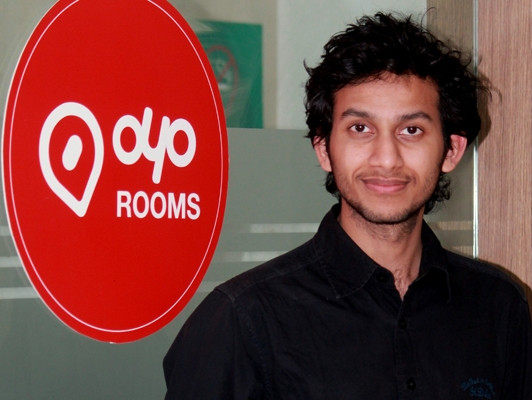OYO Rooms was founded by 21-year-old Thiel Fellow Ritesh Agarwal, and it raised $25 million as recently as April. In addition to SoftBank — which has backed Uber rival Ola, Housing.com, and Amazon rival Snapdeal in India — the round included participation from existing investors Greenoaks Capital, Sequoia Capital and Lightspeed India.
The company’s mission is to standardize budget hotel accommodation in India, and it puts its brand on hotels to provide a stamp of quality of sorts on its accommodation. (Something that it claimed appeals to smaller hotels, in particular.) It currently claims 13,000 rooms across 70 cities, but is aiming to scale to 50,000 in 200 locations by the end of this year.
Unlike other companies in this space, like newly launched Wudstay or Airbnb/hotel site Stayzila, it focuses on convenience over exploration or explicit cost savings. That’s to say that, beyond being a platform for booking, OYO Rooms has standardized features across all of its accommodation — such as free Wi-Fi, free breakfast, air conditioning and more — which again ties back to its brand.
In an interview with TechCrunch, Agarwal compared the service to taxi apps like Uber and Ola because they are enabling a new type of hotel consumption. For example, many Indian parents don’t like it when their (grown-up) kids (who live with them) go out to drink or stay out late. Rather than coming home and facing the music, they can grab “an OYO” overnight and return home the next day without fuss. There’s also 24/7 on demand (and OYO Rooms-led) customer support, while customers can order drinks while in their hotel using its mobile app.
The similarities don’t end there. OYO Rooms also runs an Uber-like operating structure, with small (20 person-ish) teams in charge of each city, while a large customer care center accounting for the majority of its 1,200 staff.






